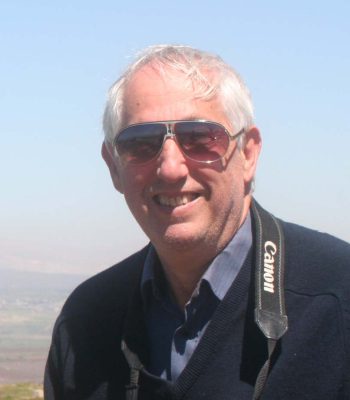
Prof. Michael Krom (Emeritus)
Department: Marine Biology
Research Areas: Marine Environmental Biogeochemistry
Phone: +972-4-8280797
Office: 195, Multipurpose Building (and Sdot Yam facility)
Email: M.D.Krom@leeds.ac.uk
Professor Michael Krom is Head of the Marine Biogeochemistry group at the Sdot Yam marine station. My first degree was from Queens’ College Cambridge and after doing a Ph.D. at Edinburgh university I carried out postdoctoral fellowships with Professors Bob Berner and Karl Turekian at Yale University. My research interests are at the interface between Environmental Geochemistry and Biology. Most of my research has been on nutrient cycling (P, N and Fe) in aquatic and sedimentary systems. This has included work on P and N cycling in the Eastern Mediterranean (EMS) probably my most important work, and in a variety of marine and freshwater sediments.I have recently become interested in the effect of climate change (and particularly storms on nutrient dynamics in the EMS and in the Juilong river catchment, China. I have worked on the how atmospheric processes alter the bioavailability of Fe and P in Saharan dust where I have worked also with climate modellers. I worked for many years on developing sustainable mariculture systems initially at the NMC, IOLR, Eilat. I was one of the two oceanography experts on the feasibility study for the Red Sea Dead Sea canal. I am currently ranked top of the Earth Scientists in Israel (Research.com) and 5th in Eastern Mediterranean research (top of EMS modern processes) by ScholarGPS.
Marine Environmental Biogeochemistry
Understanding nutrient cycling (Phosphorus, Nitrogen and Silica) is key to controlling the base of the food chain in the global ocean. The Eastern Mediterranean is a unique sea which although an inland sea with a large pollutant input acts as an ocean gyre and a special natural lab for globally important biogeochemical processes. The lab at the Sdot Yam Marine station monitors nutrient changes in order to quantify the effects of environmental and climate change in the modern world as well as using sediment records to understand climate change over the last 20k years. We are developing detailed knowledge of key marine processes to use in developing effective means of climate restoration.



